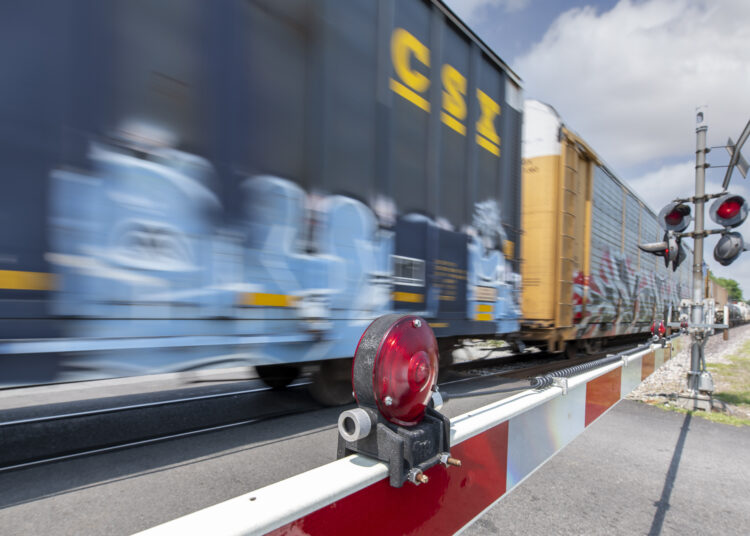Investment firm Cowen says reciprocal switching could have a negative financial impact on the U.S. railroad industry starting around 2025, according to a new research note.
But some safety initiatives in the Railway Safety Act that are making their way through Congress could have “negligible capex implications” for items such as new mandates for the implementation of hot box detectors across the U.S. rail network.
“The U.S. rails face increased regulatory scrutiny following a high-profile hazmat derailment and a historic rail merger,” Jason Seidl, Cowen transportation director, stated in the research note released Wednesday, apparently referring to a Norfolk Southern accident in East Palestine, Ohio, in February and the recent merger of Canadian Pacific and Kansas City Southern. “Reciprocal switching and rail safety are top of mind.”
Rail stocks could face pressure from headline risk and lower rail multiples, Seidl said. Multiples consist of ratios that investors use to compare the financial metrics of companies within the same sector, according to Investopedia.
Cowen interviewed Surface Transportation Board Chairman Marty Oberman in June and confirmed that the agency expects to make a decision on approving reciprocal switching sometime this year.
Reciprocal switching, which Oberman says could open the door to competitive access for shippers, occurs when a shipper has access to one freight railroad but wants access to a nearby competing freight railroad to cultivate a competitive pricing environment. Some reciprocal switching already occurs on the U.S. network, but STB’s decision could give more shippers access to this option.
Although “the devil will be in the details of any legislation,” Cowen estimates that there could be a 5% to 10% average impact on rail pricing for roughly one-third of carloads on the networks of Eastern carriers CSX (NASDAQ: CSX) and Norfolk Southern (NYSE: NSC). This is because there is a greater degree of overlap between their networks. Meanwhile, Union Pacific (NYSE: UNP) could see one-fifth of its carloads affected by reciprocal switching. UP’s network could be less affected because it doesn’t overlap as much with competitor BNSF (NYSE: BRK).
“We expect U.S. Class I stocks to react negatively to an announcement ushering in reciprocal switching rules while acknowledging that financial impacts will take time to materialize,” Seidl said. “On the safety side, the Railway Safety Act should have negligible capex implications, in our view, particularly compared to past bouts of safety regulation and have minimal effect on the stocks.”
Subscribe to FreightWaves’ e-newsletters and get the latest insights on freight right in your inbox.
Click here for more FreightWaves articles by Joanna Marsh.
Related links:
STB chair blasts Class I railroads for head count reductions
Expect to hear more about rail service issues in 2023
Rail safety bill passes Senate committee amid GOP resistance
Canadian forest products shippers want feds to collect freight rail data
The post Cowen foresees negative financial impact of reciprocal switching appeared first on FreightWaves.














